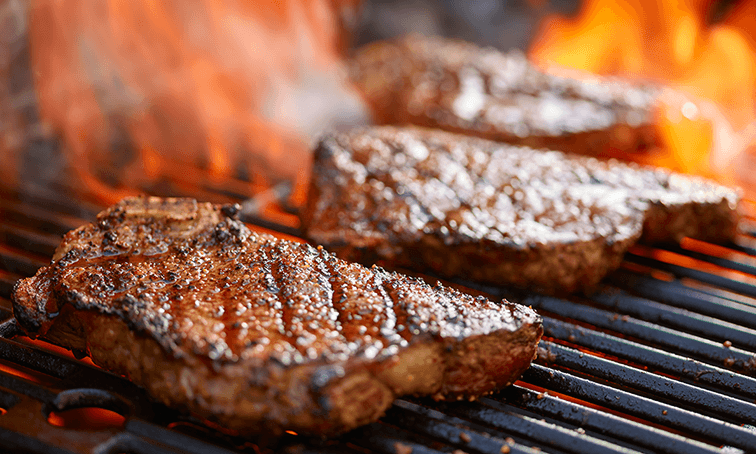Grill fires on residential properties cause an annual average of 10 deaths, 100 injuries and $37 million in property loss, according to the U.S. Fire Administration. Of these barbecue blunders, over half occur from May through August, with July piling up the highest number of incidents.
Grill fires can cause significant damages to bystanders, your property and your neighbor’s property, and cause an average loss of $11,910. Fortunately, many of these fires are preventable through proper inspection, practice and maintenance.
Lucky for you, the damages caused by grill fires are covered by most homeowners insurance policies. But both you and your insurance want to avoid this all together. Here are some grill tips to make sure your cookout doesn’t go up in smoke.
Gas grills were by far the most frequent grill type involved in grill fires, as 79 percent of grill fires are caused by gas fuels like propane. Here are some gas grill safety tips:
- Never turn on the gas with a closed lid. Gas can build up and blow off your lid when ignited, injuring you and bystanders.
- A gas smell while cooking is always a problem and likely means you have a leak. In this case, turn your grill off and call the fire department. Do not move the grill.
- Make sure every valve is completely closed after cooking.
- Always store gas grills and propane away from your house.
- Check hoses for leaks every time. Outside of normal wear and tear, the weather can harm your grill as well. Take a few seconds beforehand to prevent disaster.
Charcoal grills are the next in line for fire starters, as 17.5 percent of grill fires were caused by solid fuels such as charcoal. Check out these tips:
- Add more coals to keep the fire going, not lighter fluid. Slow and steady wins the race here. Only use lighter fluid to start the coals.
- Keep burnable objects away from the grill as charcoal can remain hot for hours.
- Since coals can burn for hours, make sure they are completely out before throwing them away, consider storing them in a metal container until you’re confident they are fully extinguished.
- Make sure you’re using the correct starter fluid for charcoal.
General grill safety tips:
- Lay off the lighter fluid. Use accelerants as little as possible as liquid and gas accelerants contributed to 37 percent of fires.
- Keep your grill at least 10 feet away from any structure—such as your house, gazebo, patio set, vehicle, etc.—or away from anything flammable.
- Keep kids away from the grill and any grilling materials, especially the flammable stuff.
- Buy a grill cover. Weather and pests can cause their own set of problems. A grill cover is an inexpensive shield to protect your grill from these elements
- Check hoses and keep them away from any hot areas. Not all grills are built perfectly and you may have to improvise. Rubber and heat do not mix and a melting hose can do plenty of damage. Move them away from heat areas if needed.
Routine maintenance is vital to grill ownership and fire prevention. In fact, malfunction is the culprit for 34.5 percent of fires during ignition.
- For gas grills, look for leaks to avoid catastrophe. This can be done by mixing a solution of half soap and half water and rubbing it along the hoses. Gas will mix with the solution and create bubbling, a tell-tale sign of a leak. It should be fairly easy to tell the difference between the bubbles caused by the soap and bubbles caused by gas.
- Get in the habit of cleaning your grill after each use. Built-up grease can cause its own types of fire in addition to your grills fuel. Routine cleaning is an easy way to prevent this and will save you time since you won’t be cleaning build-up from multiple grilling sessions. Plus, this can prevent rust and corrosion to your grill as well.
- Remember post-grilling safety. Routine clean up and proper disposal of residue and fuel is a simple way to keep you, your home and your love-ones safe.
